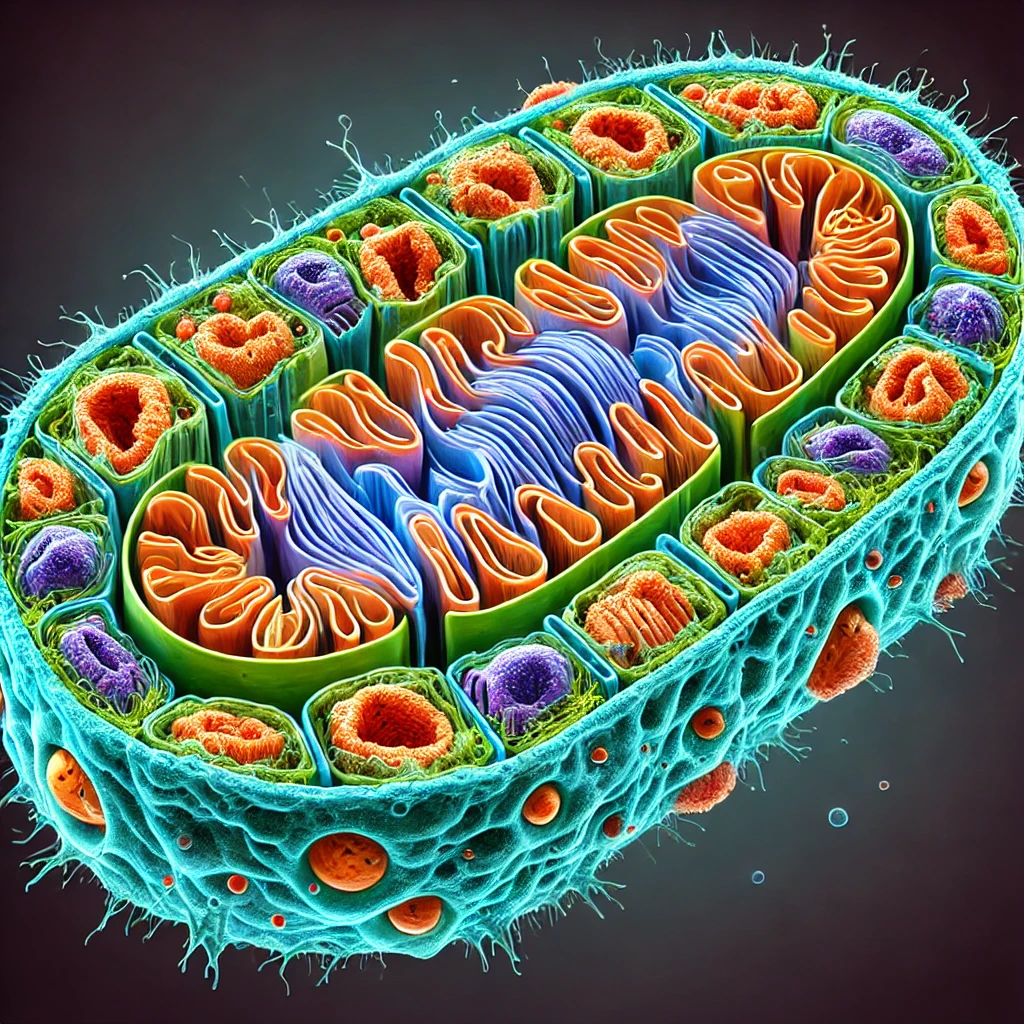Mitochondrial Dysfunction: The Hidden Factor That Can Affect Every Part of Your Life

At Sheen Vein (Aesthetics and Functional Medicine), we often meet patients who feel exhausted, mentally foggy, or unable to recover from stress and illness—despite “normal” lab results. In many of these cases, one hidden factor stands out: mitochondrial dysfunction.
Your mitochondria are often called the “powerhouses” of your cells, and for good reason. These tiny structures create the energy your body needs for nearly every function—movement, thought, immune defense, and repair. When they aren’t working well, it can affect every aspect of your health.
What Are Mitochondria and What Do They Do?
Mitochondria are small, specialized structures inside your cells responsible for producing adenosine triphosphate (ATP)—the chemical energy your cells use to function. They’re most concentrated in organs and tissues that require a lot of energy, such as:
- Brain
- Heart
- Muscles
- Liver
Mitochondria also help regulate cell signaling, control inflammation, and manage cell repair and recycling.
What Is Mitochondrial Dysfunction?
Mitochondrial dysfunction occurs when these structures can’t produce enough ATP to meet your body’s demands. This can be due to:
- Damage to mitochondrial DNA (from toxins, stress, or aging)
- Chronic inflammation
- Nutrient deficiencies
- Oxidative stress (cellular damage from free radicals)
- Certain illnesses or genetic conditions
When energy production falters, your body prioritizes essential survival functions—leaving less energy for optimal performance and repair.
How Mitochondrial Dysfunction Affects Daily Life
1. Fatigue and Low Energy
The most common symptom is persistent fatigue that doesn’t improve with rest. Without adequate ATP, your cells can’t keep up with daily demands, leaving you drained after minimal activity.
2. Brain Fog and Cognitive Decline
Your brain consumes massive amounts of energy. When mitochondrial output is low, you may notice memory issues, poor focus, slower processing speed, or mental fatigue.
3. Muscle Weakness and Exercise Intolerance
Mitochondria in your muscle cells provide the fuel for movement. Dysfunction can lead to early muscle fatigue, slower recovery after exercise, and decreased physical performance.
4. Poor Stress and Illness Recovery
Energy is essential for immune function and tissue repair. Mitochondrial dysfunction can slow healing, weaken immune defense, and make it harder to bounce back from illness.
5. Accelerated Aging
Over time, mitochondrial damage can contribute to visible signs of aging—wrinkles, decreased skin elasticity—as well as internal aging processes that affect organ function.
Potential Causes of Mitochondrial Dysfunction
In our functional medicine practice, we often see mitochondrial issues triggered or worsened by:
- Chronic stress – Excess cortisol and inflammation damage mitochondria over time.
- Nutrient deficiencies – Lack of CoQ10, magnesium, B vitamins, and antioxidants.
- Toxin exposure – Heavy metals, pesticides, mold, and environmental chemicals.
- Poor sleep – Disrupts repair cycles and increases oxidative stress.
- Sedentary lifestyle – Reduces mitochondrial density and efficiency.
- Chronic illness – Autoimmune disease, diabetes, cardiovascular disease.
How We Address Mitochondrial Dysfunction
At Sheen Vein (Aesthetics and Functional Medicine), we don’t just treat symptoms—we work to optimize mitochondrial health for better energy, performance, and longevity.
1. Comprehensive Testing
We use functional lab testing to evaluate nutrient status, inflammation markers, oxidative stress levels, and—when indicated—genetic factors that affect mitochondrial function.
2. Nutritional Support
A diet rich in antioxidants, healthy fats, and targeted micronutrients is critical. We often recommend:
- Coenzyme Q10 (CoQ10) – Supports electron transport in ATP production.
- Magnesium – Helps enzymes in the energy cycle function efficiently.
- B vitamins – Essential cofactors for mitochondrial enzymes.
- Omega-3 fatty acids – Reduce inflammation and support cell membranes.
3. Lifestyle Optimization
- Exercise – Especially interval training, which stimulates mitochondrial growth.
- Sleep – Prioritizing deep, restorative sleep for cellular repair.
- Stress reduction – Breathing techniques, meditation, and balanced scheduling to lower cortisol.
4. Toxin Reduction
We help patients identify and reduce exposure to environmental toxins and support detox pathways through diet, hydration, and sometimes targeted supplementation.
5. Advanced Therapies
In select cases, we integrate modalities like red light therapy and pulsed electromagnetic field (PEMF) therapy to stimulate mitochondrial activity and improve cellular repair.
Why Mitochondrial Health Matters for Everyone
Even if you’re not experiencing severe symptoms, supporting your mitochondria is key for:
- Sustained daily energy
- Mental clarity
- Healthy aging
- Resilience to illness and stress
- Physical performance
Think of mitochondria as your body’s “batteries”—the better you care for them, the more power you’ll have for every aspect of life.
Final Thoughts
Mitochondrial dysfunction can quietly undermine your energy, focus, and overall well-being. Because mitochondria affect every cell, their decline has a ripple effect on your entire body.
The good news is that with the right functional medicine approach—identifying root causes, correcting nutrient gaps, reducing inflammation, and supporting cellular repair—you can recharge your body’s batteries and reclaim your vitality.
If you’ve been struggling with unexplained fatigue, brain fog, or slow recovery, it’s worth exploring whether mitochondrial dysfunction is part of the picture.
📍 Serving St. Louis, Sunset Hills, Kirkwood, Webster Groves, and surrounding Missouri communities
📞 Call 314-842-1441 or request your consultation online to learn how we can help you restore optimal mitochondrial health.
Internal Links for SEO: